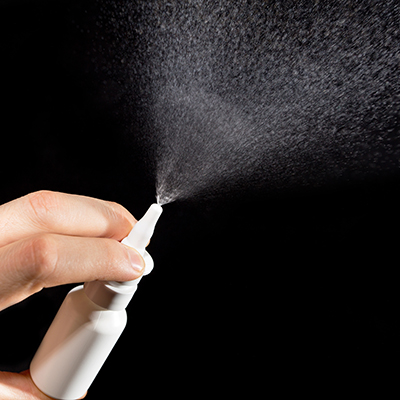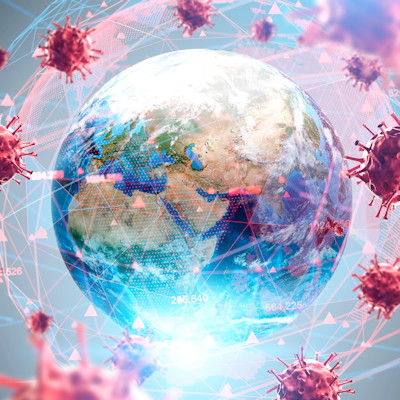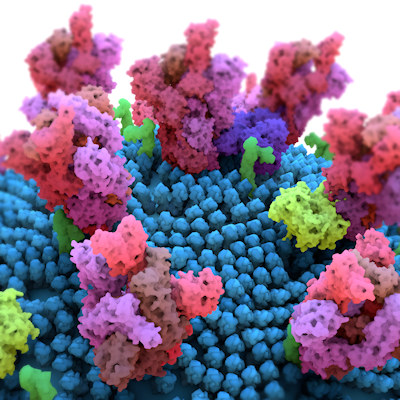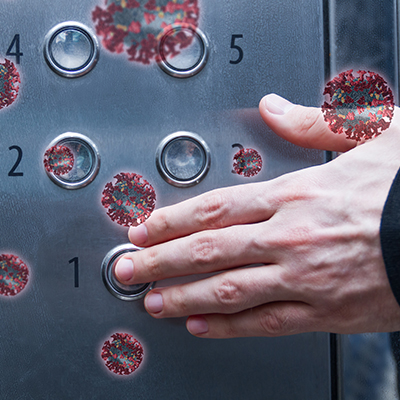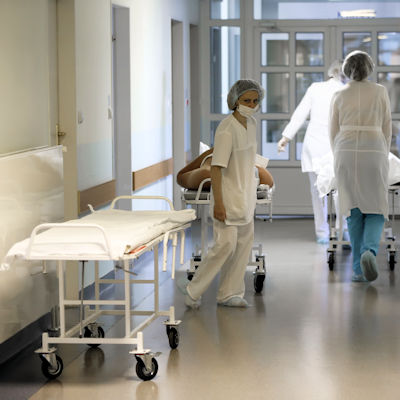April 21, 2023 -- Quebec researchers isolated infectious SARS-CoV-2 virus particles from air samples that were originally collected from COVID-19 patients’ hospital rooms, then kept frozen for more than a year.
The study, funded by the Fonds de Recherche du Québec-Santé and the Fondation du Centre Hospitalier de l'Universite de Montreal (CHUM) and published recently in Clinical Microbiology and Infection, deepens understanding of a scientific realm that has received limited examination since the pandemic's onset: the airborne spread of the SARS-CoV-2 virus.
Public health organizations, such as the World Health Organization (WHO), have been critiqued for their lack of haste in acknowledging the virus's airborne transmission potential. However, this was attributable in part to inadequate scientific proof of the existence of infectious viral particles in aerosols. Conducting such studies is challenging since it is necessary to conserve the virus's infectivity during the collection process, employ appropriate cell culture methodologies, and have access to a level 3 containment laboratory.
In their investigation, the researchers sought to demonstrate the feasibility of isolating and nurturing contagious viruses from frozen air specimens. They devised a distinctive cell culture approach to increase minute amounts of viruses gathered by a Canadian bioaerosol team. This process required the use of samplers -- a set of collection tools positioned inside the rooms of COVID-19 patients -- to maintain the virus's infectivity and safeguard it while in storage.
A total of 30 samples from 10 different rooms of COVID-19 patients were collected during the study, then stored frozen in a biobank for 14 months. The team was able to identify the presence of replicating virus particles in the aerosol samples from a patient's room. They found this could be achieved even if specimens were collected more than a year previously, frozen, and preserved prior to cell culture.
Due to the researchers' methodology, it was still feasible to retrospectively analyze the existence of infectious SARS-CoV-2 in samples gathered throughout the various waves of the pandemic. Such information could potentially assist in better understanding the significance of the virus's airborne transmission and implementing tailored preventative tactics that could be utilized to prepare for the next pandemic, whether it be SARS-CoV-2 or another respiratory virus.
The collection and culture technique can also be adapted to enclosed non-hospital settings, including schools, theaters, or places of worship, to assess air quality and evaluate the efficiency of protective measures against the airborne transmission of viruses.
"Our study should raise consciousness of airborne contagious viruses," Nathalie Grandvaux, co-author and Centre de Recherche du CHUM associate scientific director and Université de Montréal professor of medicine, said in a statement. "It advocates for the significance of targeting airborne transmission in personal and collective protection measures, which includes enhancing the quality of indoor air."
Copyright © 2023 scienceboard.net






